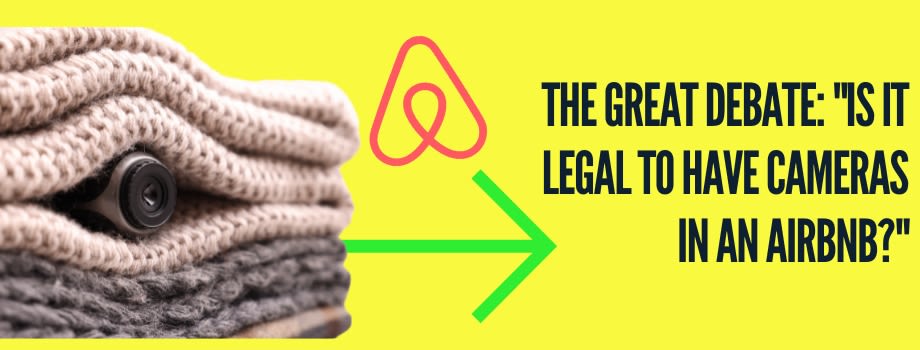
The Great Debate: “Is It Legal to Have Cameras in an Airbnb?”
Whether you are a host or a guest, the question of having cameras in an Airbnb property can be a cause for concern. Is it legal? Is it ethical? Let’s dive into the subject to shed some light on the matter.
As more and more individuals opt for Airbnb rentals over traditional hotels, a controversial topic is gaining traction – the legality and ethics of using surveillance cameras within Airbnb properties. With two valid perspectives at play, it's vital to examine the arguments on both sides to arrive at a balanced view.
On one hand, guests desire privacy. After all, a vacation is a time to unwind, unplug, and escape from the surveillance-ridden world we live in. The idea of being watched in a rented property is unsettling for most, raising concerns about violations of personal privacy.
On the other hand, hosts have their own concerns. They are opening up their homes to strangers and naturally want to protect their property from potential damages or criminal activities. They may feel that security cameras are a necessary precaution to ensure the safety of their property and belongings.
So, where is the balance? And what does Airbnb, the platform facilitating these exchanges, say about it?
According to Airbnb's policy (Updated in September 2021), hosts are allowed to have surveillance devices on their properties, but there are strict rules to ensure the privacy of guests. These rules include:
Disclosure: Hosts must disclose the presence and purpose of any security cameras or other surveillance devices in their listings, and they should provide enough information about where the devices are located and whether they are recording.
Consent: Hosts must get consent from the guests where required. If a host discloses the device after booking, Airbnb will allow the guest to cancel the reservation and receive a refund.
No Cameras Inside: Cameras are never allowed in private spaces such as bathrooms or sleeping areas, even if that's the living room with a sofa bed.
Balancing these interests is a delicate act. On one hand, guests should feel comfortable and secure in their temporary homes. On the other hand, hosts have a right to protect their properties.
One potential solution is to keep surveillance limited to outdoor areas and common spaces, with clear disclosure and consent from guests. This could provide hosts with a sense of security without infringing on the private areas where guests have a reasonable expectation of privacy.
Moreover, hosts can also utilize less invasive methods to protect their property, such as deposit requirements, secure locks, and vetting guests through Airbnb's rating and review system.
In conclusion, the balance lies in respecting the rights and needs of both parties. With clear communication, transparency, and consent, it is possible to navigate this controversial issue in a way that respects both the guest's right to privacy and the host's right to protect their property. As the sharing economy continues to grow and evolve, these conversations and policies will need to continually adapt to ensure a fair and respectful environment for all.
If you find yourself in a situation where your privacy has been compromised in a rental, it is important to know that there are legal avenues you can pursue to protect your interests. It's important to consult with a lawyer to understand your legal rights and options and to make the best decisions for your situation. Contact our attorneys today at (855) 439-0077 for a FREE 30-minute consultation at no obligation!
Please call our office to be connected with a member of our intake team, or fill out our intake form by clicking here.